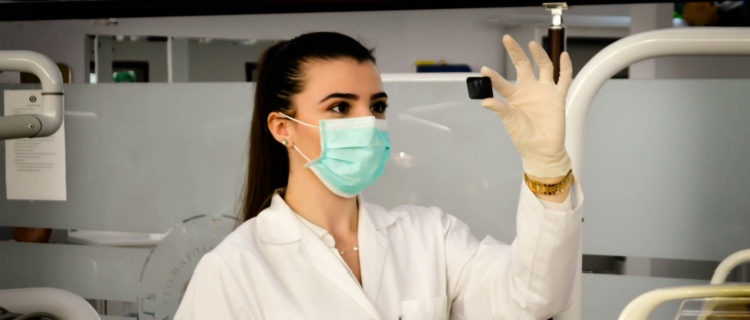
Just four months after delivering his first Budget as Chancellor, Rishi Sunak delivered a summer statement on Wednesday 8th July 2020.
Back in March, some of the Budget measures the Chancellor announced were focused on supporting people and businesses as the Covid-19 pandemic was taking hold. Four months later, the focus has now shifted to recovery as lockdown and social distancing restrictions ease.
In addition, the Chancellor announced earlier this month that he was launching a review into Capital Gains Tax. With the outcome expected to arrive before this autumn’s Budget, there could be big changes on the way for clients.
Here’s your guide to the most important announcements from recent weeks.
1. A Stamp Duty holiday
During the pandemic, both property prices and transactions fell. So, to get the housing market moving again, the Chancellor announced that he was abolishing Stamp Duty on homes worth up to £500,000.
This Stamp Duty holiday will take effect immediately and continue until 31st March 2021.
The holiday applies to all residential properties including second homes, holiday homes and Buy to Let property. Here, buyers will just pay the additional 3% Stamp Duty surcharge for second properties.
Buyers will pay 3% tax on the first £500,000 of the property’s price, 5% on the value between £500,001 to £925,000, 13% on the portion from £925,001 to £1.5m and 15% on anything over £1.5m.
2. Discounts for eating out
To support the struggling hospitality sector, the Chancellor unveiled his ‘eat out to help out’ scheme.
Throughout August, customers will be able to take advantage of a discount up to 50%, worth up to £10 per head (including children) when they eat out from Monday to Wednesday at businesses that have applied to be part of the scheme.
3. A £1,000 Job Retention Bonus for employers
The government’s furlough scheme is set to end in October. The scheme has supported nine million jobs in the UK and, to encourage businesses to retain furloughed staff rather than laying them off, the Chancellor announced a Job Retention Bonus.
If you have clients with furloughed staff, they will receive a £1,000 bonus when they bring back an employee who earns at least £520 each month and keeps them in a job until January.
4. A review of Capital Gains Tax
Earlier this month, the Chancellor took the first steps to a potential reform of Capital Gains Tax (CGT) by asking the Office of Tax Simplification (OTS) to review how the tax works, the rates that are paid, and the exemptions and allowances.
This review is likely to be completed by November, and so any changes that are recommended could be announced in Rishi Sunak’s next Budget.
Possible reforms that the Chancellor could make include:
- An increase in the rate of tax payable – perhaps to the top rate of 28% currently charged
- Aligning CGT and Income Tax rates, so 20%, 40% and 45% tax would be paid on gains
- Taxing capital gains at the same rate as dividend income. Currently, any annual dividend income from shareholdings above £2,000 is taxed at 7.5% (basic rate taxpayer), 32.5% (high rate taxpayer) or 38.1% (additional rate taxpayer).
- A change to the exemption for primary homes. This exemption costs the Treasury £26.7 billion a year and so homeowners could be taxed on profits made from property sales – perhaps above a specified value?
As far as clients are concerned, they may have just a few months left to take advantage of the current CGT rules, allowances, and exemptions. Clients who are likely to be affected by changes to CGT would be wise to take professional advice sooner rather than later.
5. A cut in VAT for hospitality and tourism sectors
Over 80% of businesses in the hospitality and tourism sectors were forced to close during lockdown.
Clients with businesses in these sectors will see the VAT they pay cut from 20% to 5% until 12th January 2021.
This includes cafés and restaurants, accommodation and attractions, such as the cinema, theme parks and zoos.
6. Incentives to employ young people
Rishi Sunak acknowledged that young people are around 2.5 times more likely to have been affected by Covid-19. So, to support younger workers into employment, the Chancellor unveiled the ‘Kickstart scheme’.
If a client hires a person aged between 16 and 24 for at least 25 hours per week, pays them the national minimum wage the government will pay these wages for up to six months.
It will amount to a grant worth around £6,500 per young person. Employers can apply to benefit from the Kickstart scheme from August 2020 and there will be no cap on the number of places funded.
7. A new green homes grant
Under this scheme, homeowners and landlords can apply for vouchers to make their homes more energy-efficient, supporting local green jobs.
The vouchers are expected to cover at least two-thirds of the costs up to £5,000 per household. The estimated energy efficiency could save families £300 a year.
Get in touch
If you or your clients are likely to be affected by any of the measures the Chancellor has recently announced, particularly potential changes to Capital Gains Tax, we can provide advice and guidance.
To find out how you can work more closely with us, or if you have any clients you feel would benefit from Chartered financial planning, email info@blueskyifas.co.uk or call us on 0118 987 6655.



